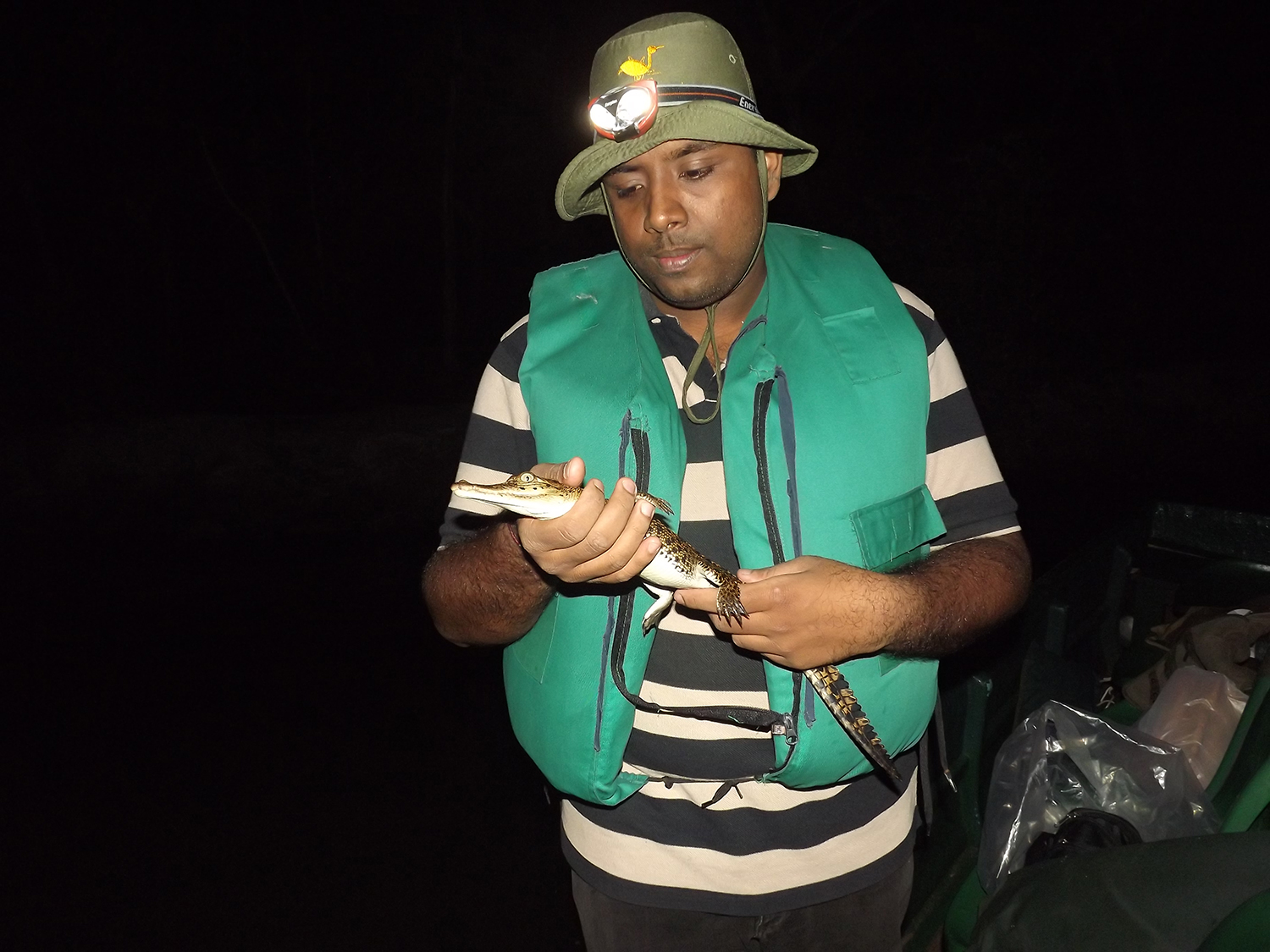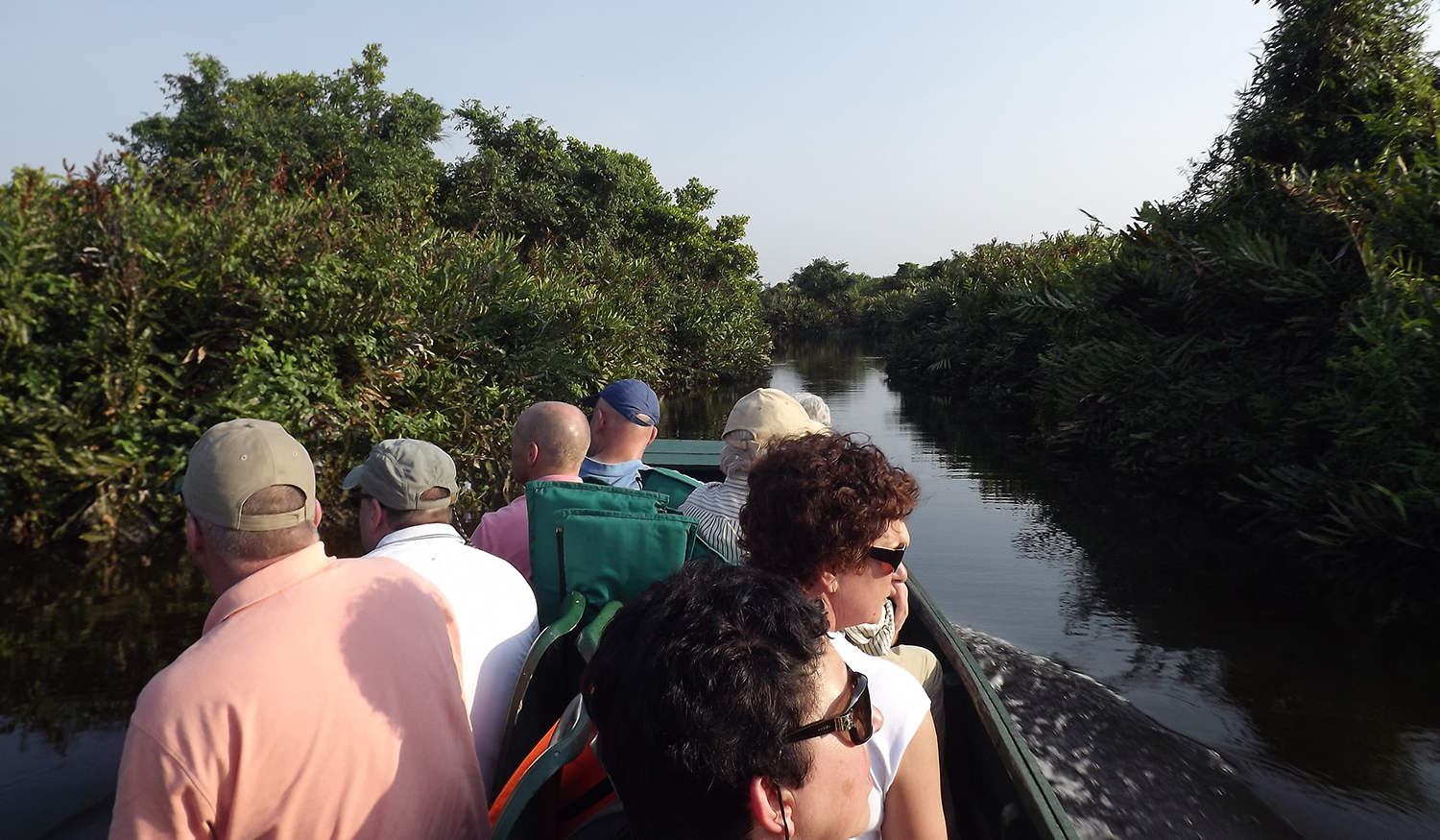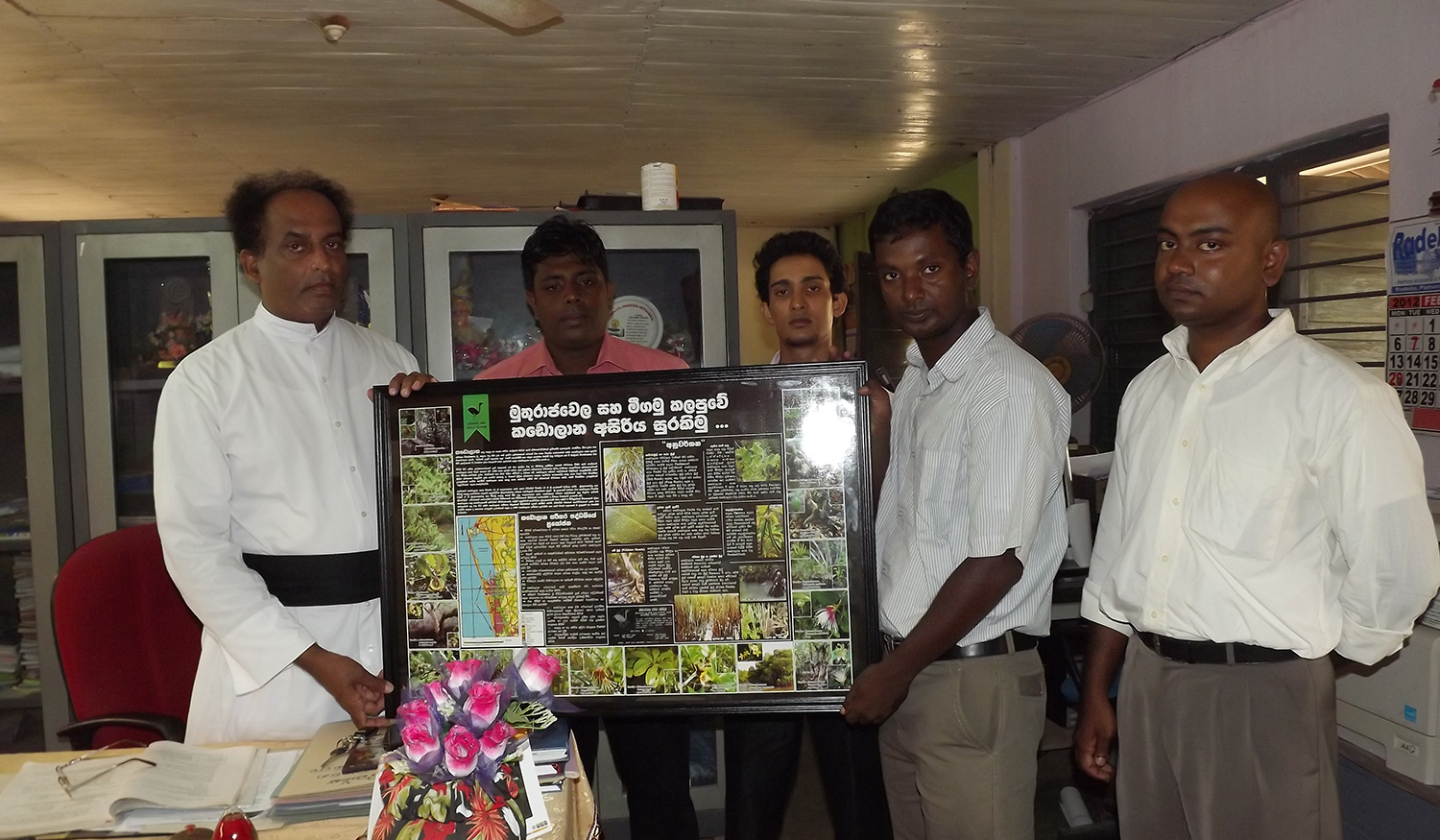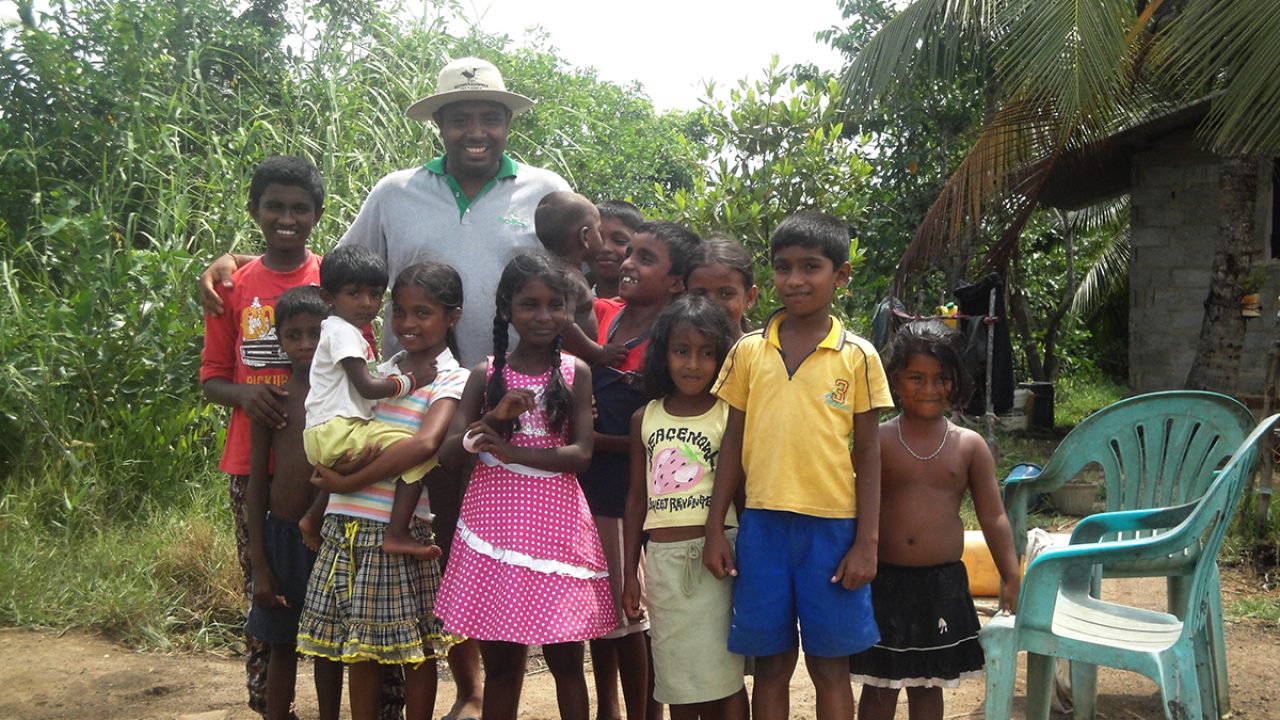The LLBCP Expert Pool is a key initiative of the Living Lakes Biodiversity and Climate Project, connecting leaders in lake and wetland conservation across the globe. This interview features T. G. Supun Lahiru Prakash, Chair of the Human-Elephant Coexistence Subcommittee at the Wildlife and Nature Protection Society in Sri Lanka and a PhD candidate in Ecology at Guangxi University, China.
Supun is a nationally recognized environmental activist, freelance journalist, and a 2020 United Nations Climate Change: Learn Champion. With expertise ranging from wildlife conservation and nature-based tourism to human-elephant coexistence, his work bridges scientific research and community action for Sri Lanka’s freshwater ecosystems.

1. Can you tell us about your professional journey and how you became involved in the protection of lakes and wetlands?
My passion for environmental conservation began in childhood and has grown steadily throughout my life. While still in high school, I began writing environment-related articles for newspapers. Initially, these focused on the beauty of nature, but over time, I started using the platform to speak out against environmental destruction, emerging as a national-level voice through print media and actively participating in conservation campaigns.
Since 2005, I have worked as a volunteer environmental activist and freelance environmental journalist. Due to the limited availability of options in the higher education system at the time, I pursued studies in agriculture by necessity rather than choice. This path led me to earn a Higher National Diploma in Agriculture and a Bachelor of Business Administration in Agribusiness Management. However, as I advanced in my academic journey, my genuine interest in environmental science became increasingly clear. I later completed a Master of Science in Forestry and Environmental Management and am currently pursuing a PhD in Ecology at Guangxi University, China.
My focused engagement in lake and wetland conservation began in 2012 when I joined the board of directors of the Muthurajawela and Negombo Lagoon Development Foundation and the Muthurajawela Visitor Centre in Sri Lanka. This role allowed me to work hands-on in wetland tourism, environmental education, and research. Since then, protecting freshwater ecosystems has become a central part of both my professional and personal commitment to conservation.

2. In your opinion, what is the most urgent environmental issue affecting freshwater ecosystems today, and why?
In the Sri Lankan context, one of the most urgent environmental threats to freshwater ecosystems—particularly wetlands like Muthurajawela—is rapid and unregulated land reclamation and encroachment.
Muthurajawela, one of the country’s most ecologically valuable wetlands, is increasingly impacted by illegal construction, drainage modifications, and solid waste dumping. These activities degrade water quality, disrupt hydrology, and destroy essential habitats for native biodiversity.
This wetland plays a vital role in flood mitigation, carbon sequestration, and providing breeding grounds for aquatic life. However, weak law enforcement, fragmented institutional management, and limited public awareness continue to undermine its protection. The pressures of urban expansion further threaten this fragile ecosystem and the livelihoods of communities that depend on it for fishing, farming, and ecotourism.
Urgent action is needed to strengthen legal frameworks, improve monitoring, and engage communities in sustainable wetland management. Protecting Muthurajawela is not only critical for biodiversity but also for enhancing climate resilience and ensuring water security in Sri Lanka’s rapidly urbanizing western region.

3. What innovative solutions are you currently applying or exploring in your work?
The Muthurajawela Visitor Centre, established in 1996 through a partnership involving the Central Environmental Authority of Sri Lanka, the Wetlands Conservation Project under the Sri Lanka–Dutch Government collaboration, IUCN, local authorities, and community groups, was one of the first initiatives to promote wetland tourism in Sri Lanka. Its core objectives include environmental education, sustainable ecotourism, and wetland research and monitoring.
As pioneers of wetland tourism in the country, we introduced a model that remains relatively underutilized locally, despite its global rise as a key sector in ecotourism. Globally, wetlands attract over half of all nature tourists, with related activities generating an estimated USD 108 billion annually. In Sri Lanka, wetlands like Muthurajawela—located near urban hubs—serve not only as biodiversity hotspots but also as accessible educational and recreational spaces.
Wetland tourism, when managed sustainably, offers dual benefits: it raises awareness of ecosystem services like flood control and water purification while creating eco-friendly livelihoods, such as employment for local youth as boat riders and nature guides. It also generates community-based incentives for conservation and reduces harmful practices like illegal landfilling. As such, we view wetland tourism as both a conservation strategy and a sustainable development pathway.
4. How does international collaboration support and strengthen your conservation efforts?
International collaboration, while not financial in our case, has greatly supported our conservation efforts through knowledge sharing and research partnerships. Most of our conservation activities are funded through income from wetland tourism, which also provides green jobs for local youth as boat operators and naturalists.
Despite the lack of direct funding, collaborations with both local and international scientists have been crucial in advancing our ecological research and conservation practices. These partnerships have enhanced our technical capacity, introduced us to global best practices, and increased the visibility of Muthurajawela’s ecological importance at international forums.
Such collaborations—combined with strong local commitment—have allowed us to continue our work with minimal resources, proving that shared knowledge and solidarity can be as impactful as financial support in strengthening grassroots conservation.
5. What advice would you give to young professionals who want to dedicate themselves to protecting lakes and wetlands?
My advice to young professionals is to begin by understanding the ecological, social, and cultural value of lakes and wetlands. These ecosystems are more than just scenic landscapes—they are essential for water regulation, biodiversity conservation, and community livelihoods. In Sri Lanka, wetlands like Muthurajawela face increasing threats from unsustainable development, yet their significance often goes unrecognized.
Start by engaging locally. Volunteer with community groups, join citizen science programs, and immerse yourself in the field. Practical experience will deepen your understanding and passion. At the same time, pursue interdisciplinary learning—combining environmental science with communication, economics, and policy—to address the complex challenges these ecosystems face.
Most importantly, stay committed and courageous. Conservation work can be slow and challenging, but every voice and action counts. Use your skills and platforms to advocate for wetlands, raise awareness, and influence decision-making. Protecting freshwater ecosystems is not just a professional path—it is a long-term commitment to environmental justice and the well-being of future generations.

